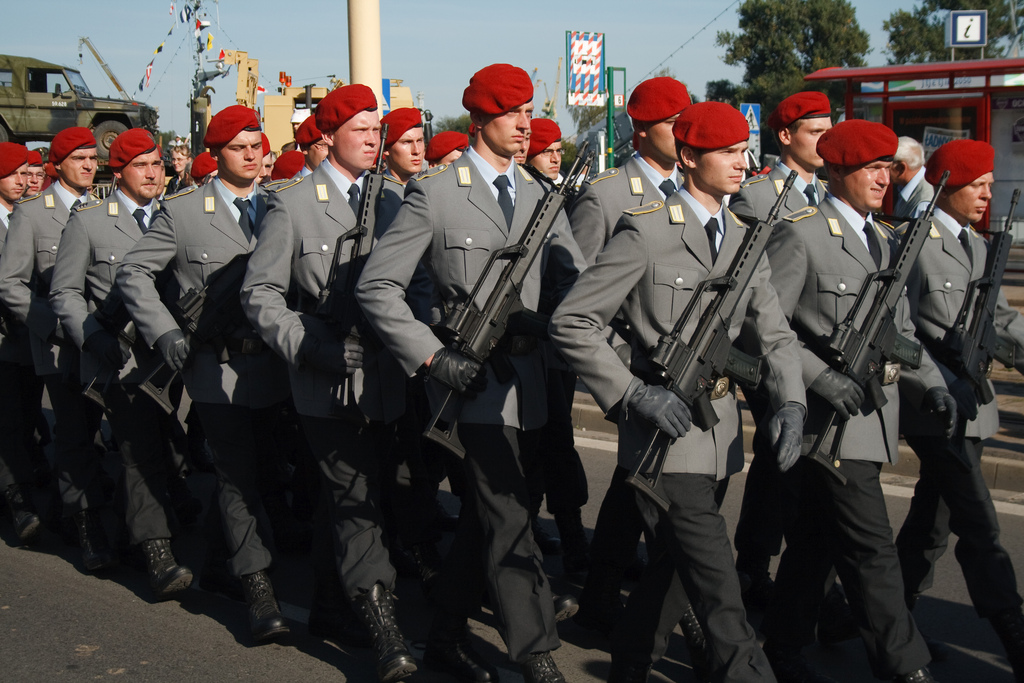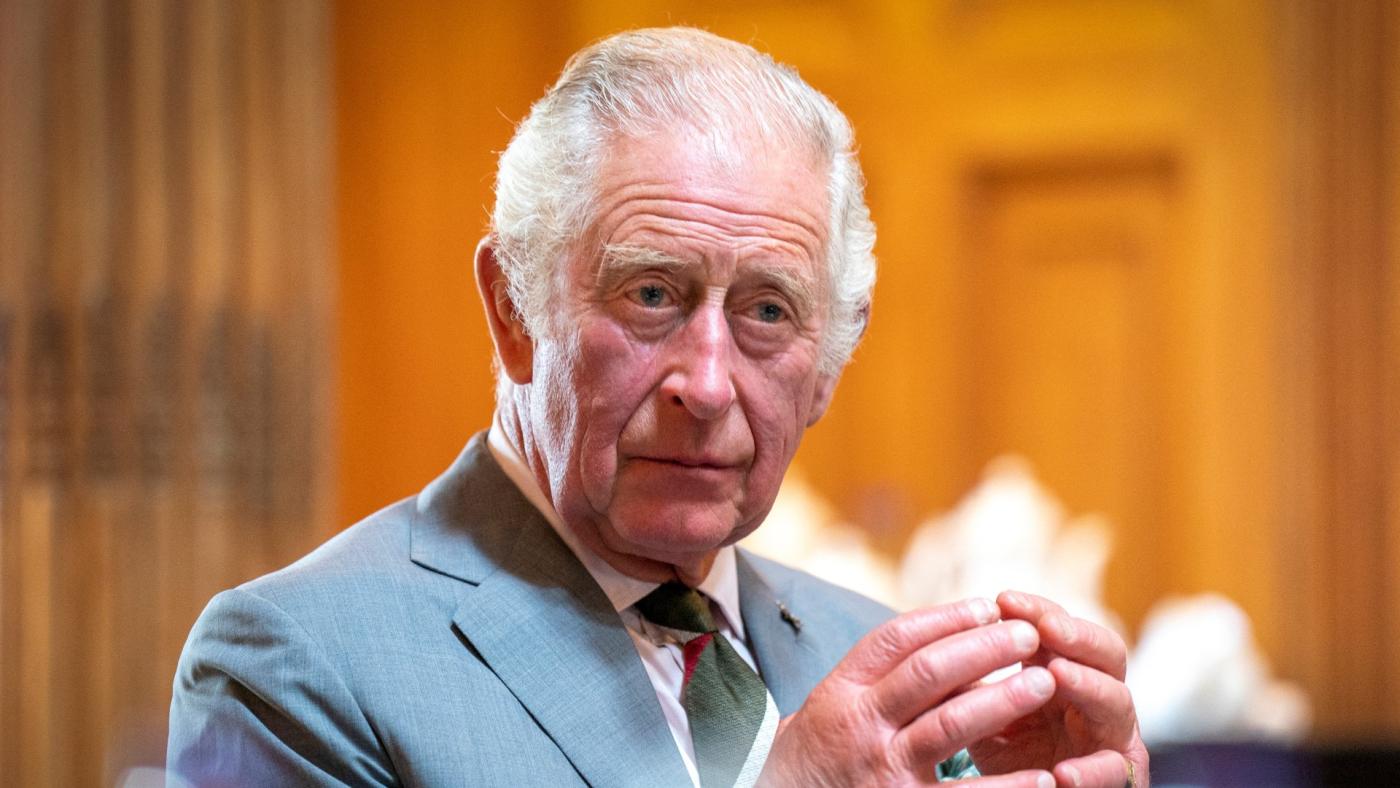Just like the population at large, the German Bundeswehr has undergone a remarkable trajectory of religious pluralisation in recent years. As of 2012, over 48,000 Catholics and over 63,000 Protestants served in the armed forces. This would mean that just over half of Germany’s 180,000 soldiers identified as Christian; a figure that maps quite closely onto the percentage of Christians in the general population.
Yet even though this is a far cry from the almost universally Christian West Germany that witnessed the Bundeswehr‘s creation in 1955, the system of military chaplaincy has long remained resistant to change: while the army employs 74 Catholic and 92 Protestant military chaplains, soldiers of other faiths do not have immediate, Bundeswehr-organised access to religious support in accordance with their religious tradition.1
Recruitment of ten Jewish military chaplains
As a result, calls for Jewish and Muslim military chaplains have resounded for years. In December 2019, this finally led to the signing of an agreement between the Ministry of Defence and the Central Council of Jews in Germany (ZdJ), to the effect that the Bundeswehr will begin recruiting ten rabbis. The army counts an estimated 300 Jewish soldiers, meaning that there will be a rabbi for every 10 Jewish soldiers. The German parliament still needs to ratify the accord; this should, however, be a mere formality.
Jewish military chaplains had existed during WWI but the position had been abolished subsequently. Given the history of the Holocaust, the public signing of the declaration – which took place at the ZdJ’s annual convention – was suffused with much of the pathos of remembrance and catharsis characteristic of such events in Germany. All parties concerned lauded the agreement as a “historic” step and a “moving moment”, especially when viewed in contrast with the “tremendous German crimes” of the past.
For non-Jewish German leaders and the wider public the planned recruitment of Jewish military rabbis thus represents a further step in the narrative of ‘overcoming’ the Nazi past. For many Jewish commentators on the accord struck between the ZdJ and the Defence Ministry the introduction of military chaplains consolidates Jewish representation at the heart of the democratic institutions of post-WWII Germany.2
Call for Muslim military chaplains falls on deaf ears
Earlier in 2019, before the German federal government and the ZdJ came to their agreement, the potential recruitment of military imams had loomed large in German public debates. This was linked above all to the publication of Nariman Hammouti-Reinke’s book I Serve Germany: The Case for the Bundeswehr – And Why It Needs to Change. Hammouti-Reinke is a 39-year-old soldier who has been with the Bundeswehr for 14 years and identifies as Muslim. She co-founded initiatives aiming not only to enhance diversity within the German armed forces, but also to advocate for the recruitment of Jewish and Muslim military chaplains.
However, while the establishment of a Jewish military chaplaincy has now been welcomed with much public fanfare, no action has been forthcoming from the Ministry of Defence with regards to potential military imams. Muslim leaders have, however, been calling for Muslim representation in the German military chaplaincy for years. It was, in fact, one of the earliest demands of Aiman Mazyek after he assumed the leadership position of the Central Council of Muslims in Germany (ZMD) in 2010.
This means that Muslims continue to be without specific religious services provided to them in the military, like all religious groups other than Catholics, Protestants, and – in the future – Jews. Instead, they can turn to the ‘Central Contact Office for Soldiers of Other Faiths’: founded in 2015, it puts the army’s members of religious minorities in touch with civilian religious clergy.3
A lack of ‘Muslim representatives’?
On the face of it, the provision of religious services to Muslim members of the German armed forces appears to be a comparatively pressing matter, given that there are an estimated 3,000 Muslim soldiers. This makes Muslims ten times more numerous in the armed forces than their Jewish comrades.
The official explanation given for this lack of progress in matters of military imams is the splintered nature of the German Islamic associational scene: while the Jewish ZdJ is seen by the federal government as representative of the German Jewish population, no institution of comparable weight exists on the Muslim side. Instead, there are a number of different and sometimes competing associational players, many of whom have their roots in Muslim communities differentiated by origins, language, traditions, and doctrine.4
Who ‘represents’ a religious community?
However, this notion of ‘representativeness’ (or the lack thereof) needs to be taken with a pinch of salt. To begin with, the difficulty the German state has with many Islamic associations is above all political in nature. In fact, successive German governments have ‘groomed’ different associational players on the Muslim side over time – only to drop them later on, when their political claims were no longer deemed opportune. At the very least since 9/11, a pervasive ‘logic of suspicion’ has also prevented meaningful cooperation in many policy fields.
Conversely, it is by no means certain that the Central Council of Jews has the unquestioned allegiance of all of Germany’s Jews. To be sure, the ZdJ unites 105 Jewish congregations across the country, with roughly 100,000 members. Yet whether all of them actually can be said to feel ‘represented’ by the positions of the ZdJ is far from clear – perhaps a ZdJ synagogue is simply the only one in their vicinity. (Germany’s overall Jewish population is an estimated 250,000, adding to the ‘representational’ conundrum.)
Moreover, the ZdJ has over the years been embroiled in a number of disputes within the Jewish community. Some of these divisions are linked to origins; others to politics. Jewish progressives, most notably, see the ZdJ as too conservative, too deferent to the German government, and too subservient to right-wing Israeli politics. As a result, they criticise it for being unable to build meaningful alliances with other minorities in Germany – most notably Muslims, in whose stigmatization the ZdJ often appears to be complicit.5
Military chaplaincy and the governance of religious minorities in contemporary Germany
In sum, the issue of military chaplaincy is indicative of broader issues in the governance of religious minorities in Germany today. After a very long wait, Jewish soldiers are now obtaining military rabbis. Whilst in a sense this does constitute a gain in rights and public recognition, it is embedded in the suffocating matrix of a post-Holocaust culture of remembrance that is central to the contemporary German national imaginary but that confines Jewish claims-making to a docile role: as German Jewish intellectual Max Czollek puts it, Jews’ gradual inclusion into more and more state institutions (such as the Bundeswehr) is above all supposed to be a testimony to the fact that non-Jewish Germans have ‘learnt the lessons of history’. Other than warning of the dangers of a resurgent anti-Semitism, Jews themselves have comparatively little say in how they are co-opted in this nationalist narrative.
The fact that Jewish groups have managed to secure military chaplains while Muslims and others are left out in the cold is therefore also an indicator of the failure to build alliances that bring together different minorities in their demands for public recognition and political participation in a post-Christian context that often marginalises them in myriad ways.
Military chaplaincy: abolition or expansion?
Today, the very system of military chaplaincy is under pressure in some quarters: for atheist activists it constitutes a flagrant violation of state neutrality, as well as an unnecessary expense from a state budget financed by a citizenry increasingly distant from organised religion.6 For others on the political left, the current system is untenable for the discriminatory treatment it metes out to different religious groups, and for making men and women of the clergy subservient to the military system.7
In spite of these more fundamental critiques, the introduction of Muslim military chaplains can most probably not be deferred forever. It might well be that ultimately a system is put in place that resembles the arrangements made to offer Islamic religious education at public schools or degrees in Islamic theology at public universities: because the German state did not trust any single Islamic association, it created ‘advisory councils’ with more or less hand-picked ‘Muslim representatives’ and a heavy degree of state interference.
This set-up is constitutionally somewhat questionable and inherently politicised; and it was initially supposed to be nothing but a stop-gap solution before a more durable settlement could be found. Yet these advisory councils are still with us today – as signs both of institutional adjustment in the face of religious diversity and of the enduringly precarious position of Muslims in contemporary Germany.
Sources
http://www.bundeswehr-journal.de/2014/migration-religion-und-integration/ ↩
https://www.zdf.de/nachrichten/heute/staatsvertrag-fuer-juedische-militaerseelsorge-unterzeichnet-100.html ↩
https://www.bundeswehr-support.de/bws/ansprechstellen/zentrale-ansprechstelle-fuer-soldatinnen-und-soldaten-anderer-glaubensrichtungen.html ↩
https://taz.de/Geistliche-Seelsorger-in-der-Bundeswehr/!5647318/ ↩
https://taz.de/Kommentar-zu-Antisemitismus-Programm/!5593880/ ↩
https://taz.de/Geistliche-Seelsorger-in-der-Bundeswehr/!5647318/ ↩






